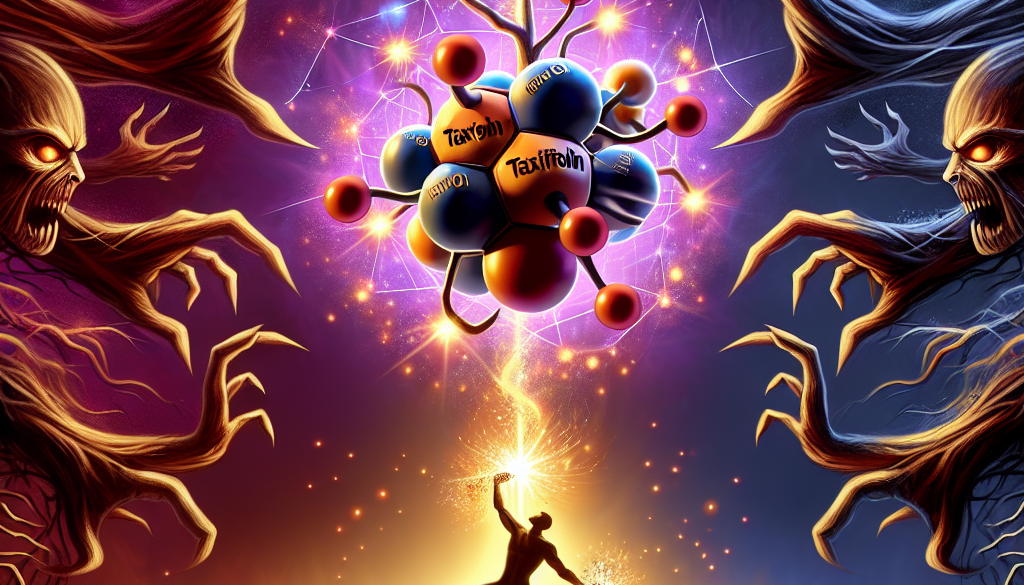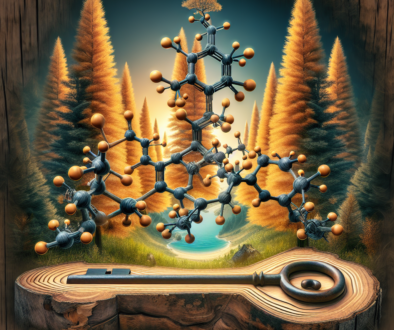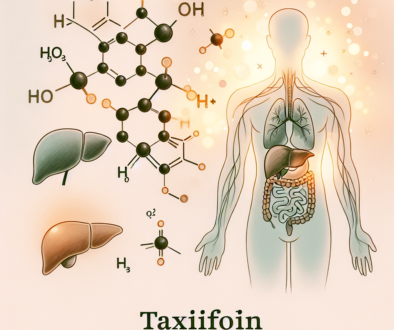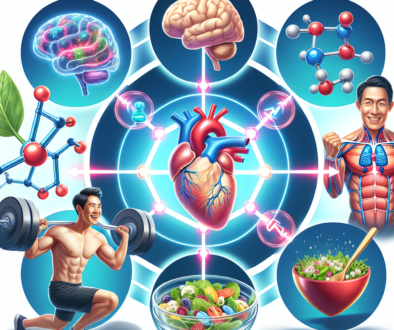Taxifolin: Uncover Its Antioxidant Might
-
Table of Contents
- Taxifolin: Harnessing the Antioxidant Powerhouse for Health
- Understanding Taxifolin and Its Sources
- The Antioxidant Mechanism of Taxifolin
- Health Benefits Backed by Research
- Case Studies and Clinical Trials
- Comparative Antioxidant Strength
- Applications in Food and Supplements
- Considerations and Dosage
- Conclusion: The Antioxidant Potential of Taxifolin
- Discover ETprotein’s High-Quality Protein Products
Taxifolin: Harnessing the Antioxidant Powerhouse for Health
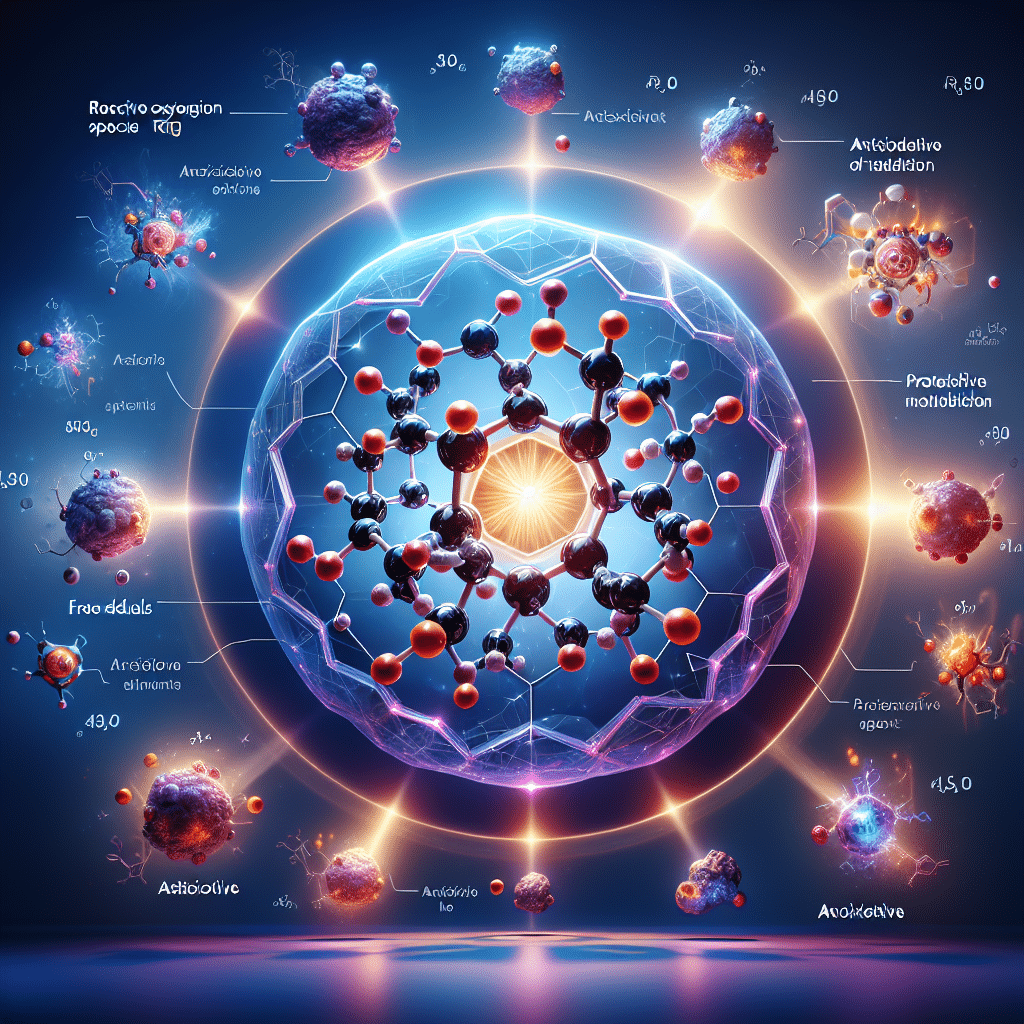
Antioxidants are the unsung heroes in the fight against oxidative stress and the myriad of health issues that come with it. Among these protective compounds, taxifolin, also known as dihydroquercetin, stands out for its potent antioxidant properties. This flavonoid, found in various plants and foods, has been the subject of numerous studies due to its potential health benefits. In this article, we delve into the science behind taxifolin and explore how its antioxidant might can be harnessed for better health.
Understanding Taxifolin and Its Sources
Taxifolin is a bioflavonoid similar in structure to the well-known quercetin. It is found in a variety of natural sources, including onions, French maritime pine bark, and milk thistle. The compound is also present in significant amounts in Siberian larch trees, from which commercial extracts are often derived. Taxifolin’s antioxidant activity is attributed to its ability to scavenge free radicals and chelate metal ions, which can catalyze oxidative reactions.
The Antioxidant Mechanism of Taxifolin
The antioxidant capacity of taxifolin is rooted in its chemical structure, which allows it to donate hydrogen atoms to free radicals, neutralizing them before they can damage cells. By inhibiting oxidative stress, taxifolin helps protect DNA, proteins, and lipids from damage, which is crucial for maintaining cellular health and preventing chronic diseases.
Health Benefits Backed by Research
Scientific studies have highlighted several health benefits associated with taxifolin, including:
- Cardiovascular Health: Taxifolin has been shown to improve blood circulation and reduce the risk of atherosclerosis by preventing the oxidation of low-density lipoprotein (LDL) cholesterol.
- Anti-inflammatory Effects: Its ability to modulate inflammatory pathways makes taxifolin a promising compound for managing conditions like arthritis and asthma.
- Cancer Prevention: Research suggests that taxifolin may inhibit the growth of cancer cells and enhance the effectiveness of chemotherapy drugs.
- Diabetes Management: Taxifolin’s potential to regulate blood sugar levels and improve insulin sensitivity could be beneficial for individuals with diabetes.
- Liver Protection: The flavonoid has hepatoprotective properties, which may help in treating liver diseases by reducing oxidative stress and inflammation.
Case Studies and Clinical Trials
Several case studies and clinical trials have provided evidence for taxifolin’s health benefits. For instance, a study on patients with chronic venous insufficiency showed that taxifolin supplementation improved symptoms and quality of life. Another trial involving diabetic patients found that taxifolin improved glycemic control and antioxidant status.
Comparative Antioxidant Strength
When compared to other antioxidants, taxifolin exhibits a higher or comparable efficacy. Its antioxidant activity is often measured against that of vitamin C, vitamin E, and other flavonoids. In various assays, taxifolin has demonstrated superior free radical scavenging ability, making it a potent antioxidant in the nutraceutical industry.
Applications in Food and Supplements
Taxifolin’s stability and solubility make it an ideal ingredient for functional foods and dietary supplements. It is used to fortify juices, teas, and health bars, providing an additional antioxidant boost to these products. In supplement form, taxifolin is available as capsules, tablets, and powders, often marketed for its cardiovascular and liver health benefits.
Considerations and Dosage
While taxifolin is generally considered safe, it is important to consult with a healthcare provider before starting any new supplement regimen. The appropriate dosage of taxifolin can vary depending on the individual’s health status and the intended use. Most studies have used doses ranging from 50 to 600 mg per day, with higher doses typically reserved for clinical settings.
Conclusion: The Antioxidant Potential of Taxifolin
In conclusion, taxifolin is a powerful antioxidant with a wide range of potential health benefits. Its ability to combat oxidative stress and inflammation positions it as a valuable ally in the prevention and management of various chronic diseases. As research continues to uncover the full extent of taxifolin’s capabilities, it is likely that this flavonoid will become an increasingly popular ingredient in health-promoting products.
Discover ETprotein’s High-Quality Protein Products
For those looking to complement the antioxidant benefits of taxifolin with high-quality protein sources, ETprotein offers a range of organic bulk vegan proteins and L-(+)-Ergothioneine. Their products, including organic rice protein, pea protein, and various seed proteins, are characterized by a neutral taste, non-GMO, and allergen-free attributes. ETprotein caters to industries such as nutraceuticals, pharmaceuticals, cosmeceuticals, and food and beverage, providing comprehensive protein solutions for a healthier lifestyle.
About ETprotein:
ETprotein, a reputable protein and L-(+)-Ergothioneine (EGT) Chinese factory manufacturer and supplier, is renowned for producing, stocking, exporting, and delivering the highest quality organic bulk vegan proteins and L-(+)-Ergothioneine. They include Organic rice protein, clear rice protein, pea protein, clear pea protein, watermelon seed protein, pumpkin seed protein, sunflower seed protein, mung bean protein, peanut protein, and L-(+)-Ergothioneine EGT Pharmaceutical grade, L-(+)-Ergothioneine EGT food grade, L-(+)-Ergothioneine EGT cosmetic grade, L-(+)-Ergothioneine EGT reference grade and L-(+)-Ergothioneine EGT standard. Their offerings, characterized by a neutral taste, non-GMO, allergen-free attributes, with L-(+)-Ergothioneine purity over 98%, 99%, cater to a diverse range of industries. They serve nutraceutical, pharmaceutical, cosmeceutical, veterinary, as well as food and beverage finished product distributors, traders, and manufacturers across Europe, USA, Canada, Australia, Thailand, Japan, Korea, Brazil, and Chile, among others.
ETprotein specialization includes exporting and delivering tailor-made protein powder and finished nutritional supplements. Their extensive product range covers sectors like Food and Beverage, Sports Nutrition, Weight Management, Dietary Supplements, Health and Wellness Products, and Infant Formula, ensuring comprehensive solutions to meet all your protein needs.
As a trusted company by leading global food and beverage brands and Fortune 500 companies, ETprotein reinforces China’s reputation in the global arena. For more information or to sample their products, please contact them and email sales(at)ETprotein.com today.

